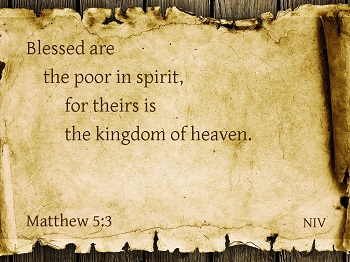Given everything that’s going on with COVID-19, especially so much misinformation or outright wrong information being put out by supposed Christians and political people that some (many?) Christians listen to, I decided to write some stuff that’s actually Biblically based. Something for Christians to ground ourselves and not be misled.
 Something to remind us of a warning that Jesus gave to His true followers.
Something to remind us of a warning that Jesus gave to His true followers.
A Tree and Its Fruit
Mt 7:15 “Watch out for false prophets. They come to you in sheep’s clothing, but inwardly they are ferocious wolves. 16 By their fruit you will recognize them. Do people pick grapes from thornbushes, or figs from thistles? 17 Likewise every good tree bears good fruit, but a bad tree bears bad fruit. 18 A good tree cannot bear bad fruit, and a bad tree cannot bear good fruit. 19 Every tree that does not bear good fruit is cut down and thrown into the fire. 20 Thus, by their fruit you will recognize them.
Mt 7:21 “Not everyone who says to me, ‘Lord, Lord,’ will enter the kingdom of heaven, but only he who does the will of my Father who is in heaven. 22 Many will say to me on that day, ‘Lord, Lord, did we not prophesy in your name, and in your name drive out demons and perform many miracles?’ 23 Then I will tell them plainly, ‘I never knew you. Away from me, you evildoers!’
It doesn’t matter if they really are false prophets / teachers or not. We can make someone into a false teacher. Take political leaders as one common example. They use the word God a lot. They even claim to be good for Christianity. People even say they’re sent by God. But honestly, when they do things that are so un-Christlike, can that really be true? Would God send someone who spews hatred, mocks others, always puts themselves first (instead of last as Jesus taught and did)?
The only way I can see that happening is if God is trying to send us a wake-up call. A warning. Not as a teacher. Not as an example to follow. Think people like Pharaoh and Nebuchadnezzar.
To that end, here are a few articles over on my other site that will hopefully help both Christians and non-Christians sort out the truth, the lies, and the misconceptions for some of what’s going on out there in the name of God and Christianity.
Do Christians need tax breaks to give more?
There was an attempt to get more money for non-profits in the name of churches. The assumption is that without tax breaks, people won’t give to them. Is that true? More specifically, is that true for those Christians that really try to follow Jesus’ example and what He taught? For some, the money just won’t be there. But will that spell the end of a church with true believers?
Why do you live? The economy or God?
Is your life only about supporting the economy? Are you parents and grandparents willing to die so your kids and grandkids can live in a world that has a better economy? Or is your life worth more than that?
Where is God in the Coronavirus?
Yes – where is God? Did He do this? Does He even know about it?
The Bible teaches that no, God didn’t do this, although He did allow it. A fine line – but a really important one. It’s the difference between the truth of the Bible and a lie about it.
Does God know what’s happening? Absolutely.
Is God here in the midst of this? Of course. To find Him – try looking in the mirror. Even non-Christians might very well find something of God in the person they see in the mirror.
Suffering for doing good
This takes the previous one – Where is God in the Coronavirus? and goes even deeper. Especially for a non-Christian. But I recommend it to Christians as well, because these two especially may be a way for Christians to help our non-Christian relatives, friends, co-workers see something of God in themselves. After all, the Bible teaches that God did write something of Himself in all our hearts. Even our perceived enemies.
I pray that they help you.


 But now I was diagnosed with cancer. And my first instinct was not to run away. Nor to get mad. Instead, it was to run to God. And trust Him that, no matter what happens, everything’s going to be OK.
But now I was diagnosed with cancer. And my first instinct was not to run away. Nor to get mad. Instead, it was to run to God. And trust Him that, no matter what happens, everything’s going to be OK.





